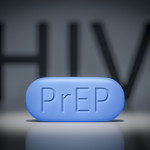Early virologic response to an interferon-based regimenplus ribavirin for hepatitis C virus (HCV) infection predicts sustainedvirologic response in patients who are also infected with HIV.
Several studies have already shown that early virologic responsepredicts sustained virologic response in patients infected with onlyHCV, Dr. Montserrat Laguno from Hospital Clinic Universitari deBarcelona, and associates explain. But it is unclear whether this holdstrue in patients co-infected with HIV and HCV.
Dr. Laguno’s group investigated the utility of an early virologicresponse to predict a sustained virologic response to HCV therapy in 95co-infected patients.
Early virologic response was associated with a sustained virologicresponse, with a positive predictive value of 64%, the authors reportin the February 1st issue of the Journal of Acquired Immune DeficiencySyndromes. In contrast, none of the patients without an early virologicresponse had a sustained virologic response, the report indicates.
Achieving undetectable HCV RNA at week 4 (a very early virologicresponse) predicted sustained virologic response with a positivepredictive value of 89% and a negative predictive value of 70%, theresearchers note.
A very early virologic response had higher positive predictive valuefor sustained virologic response when patients received pegylatedinterferon as opposed to interferon, the results indicate.
“The results of our study suggest that the rules of reduction of 2log of the viral load at week 12 of HCV therapy in co-infected patientshave the same value as those in mono-infected patients,” theinvestigators conclude.






Comments
Comments